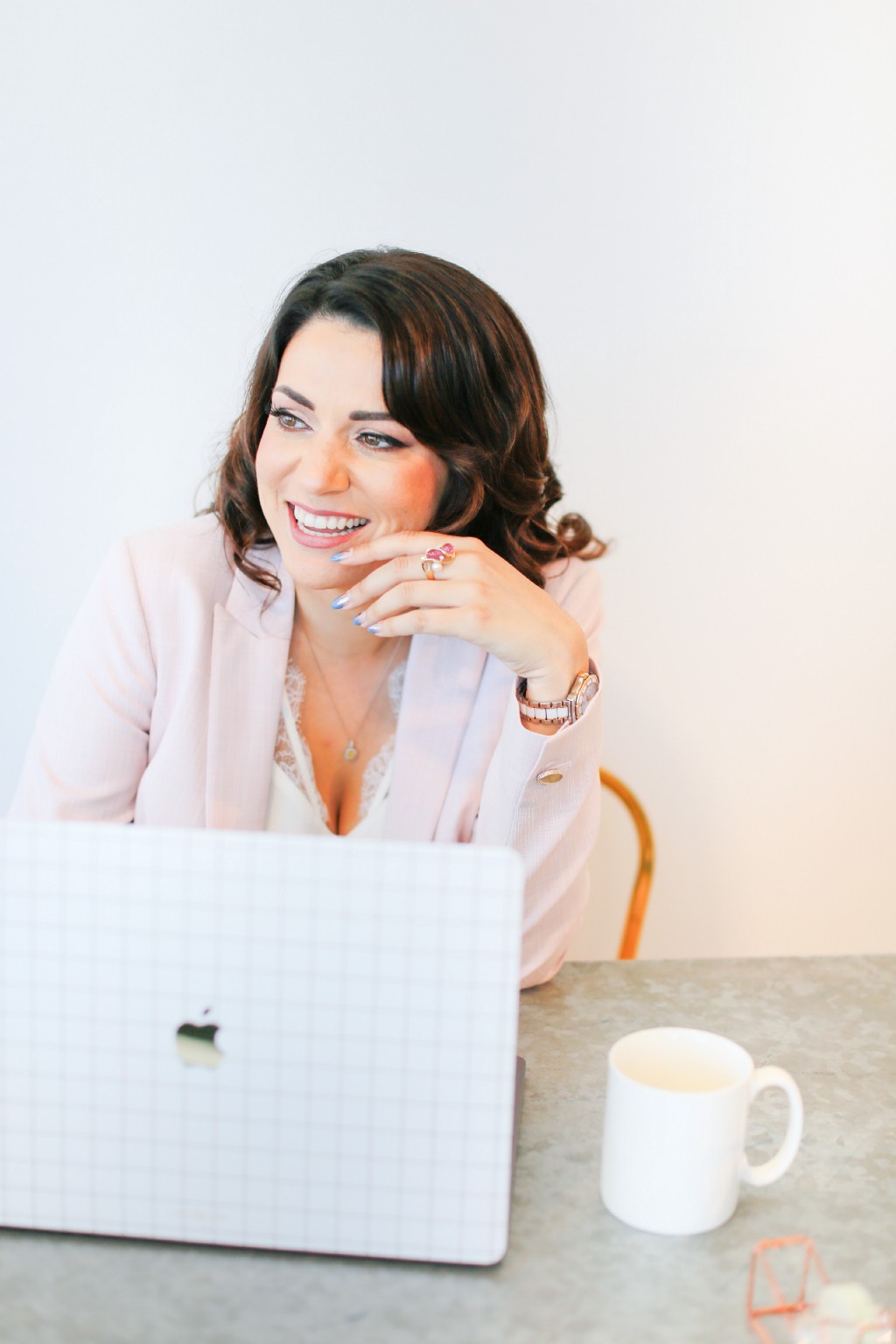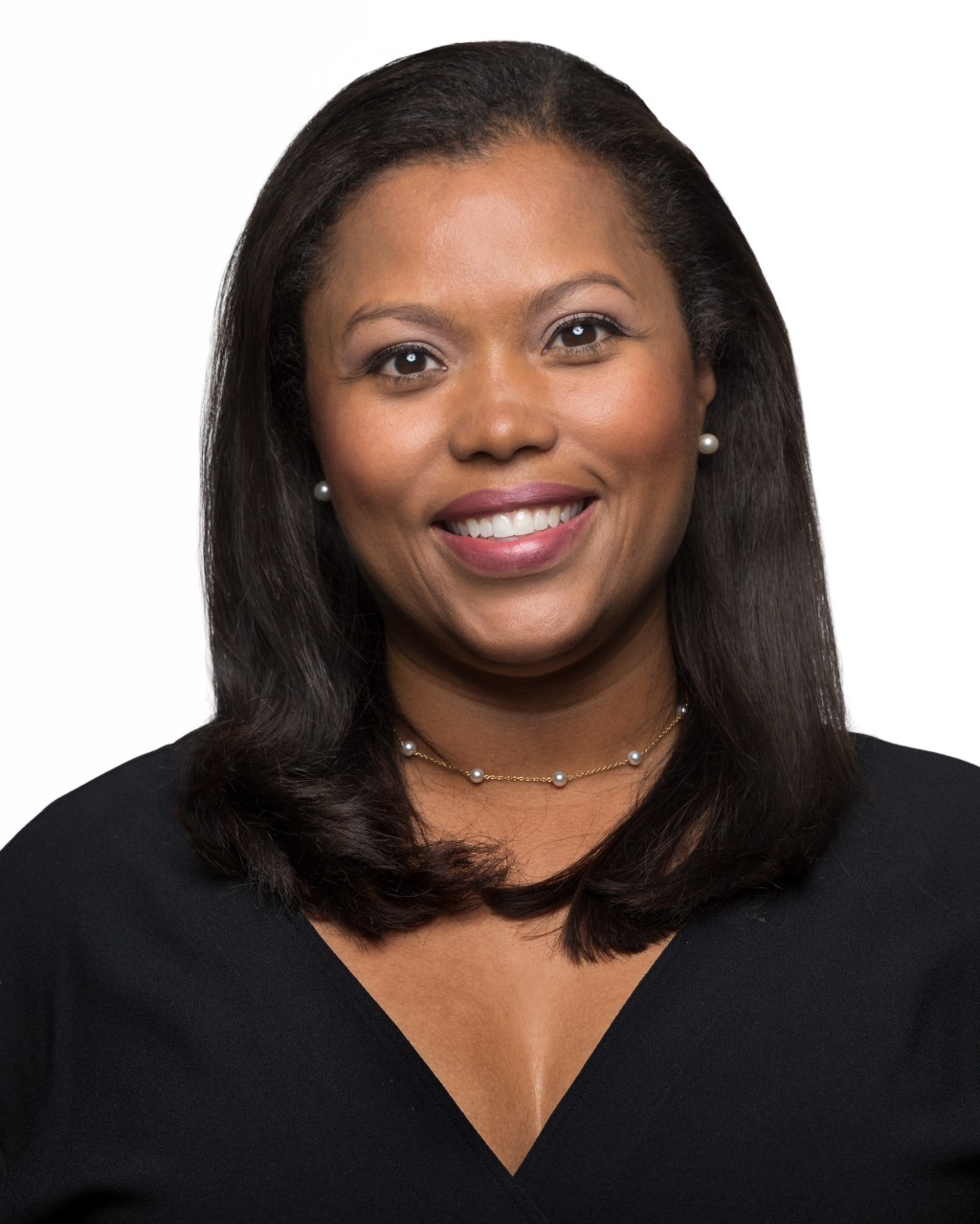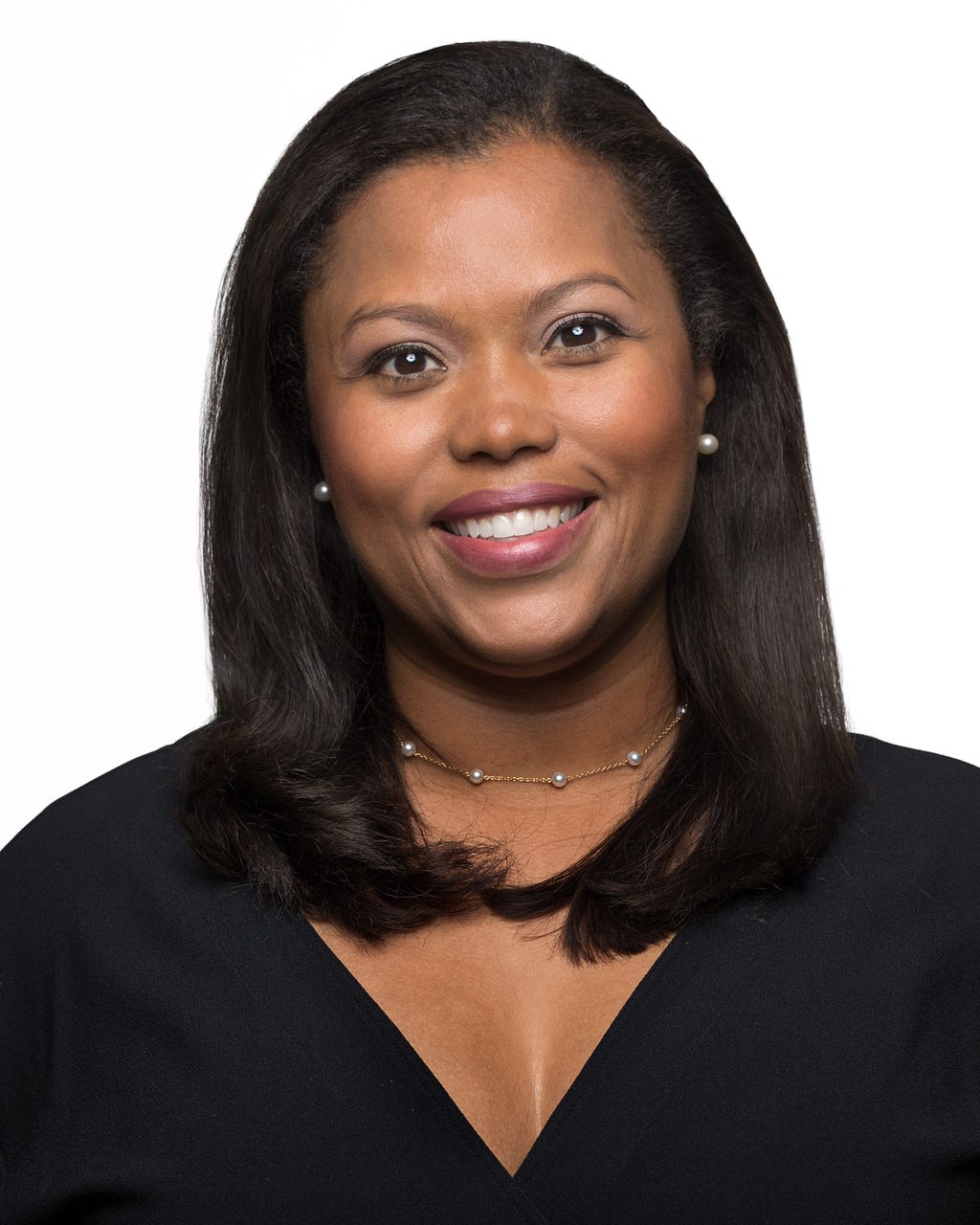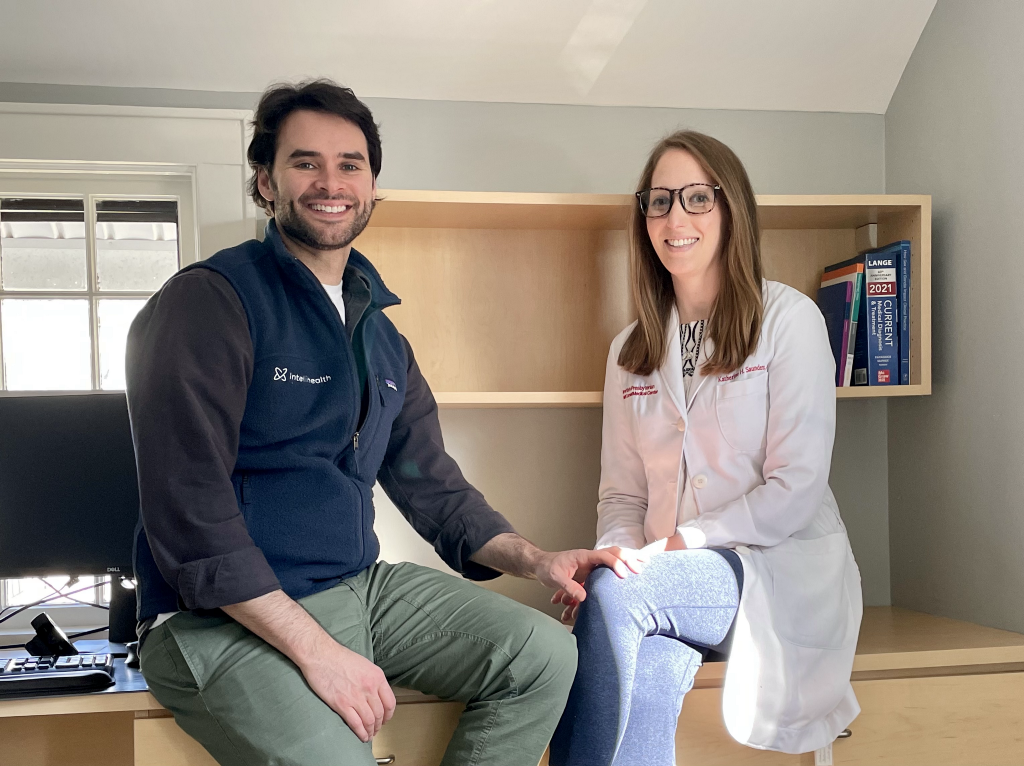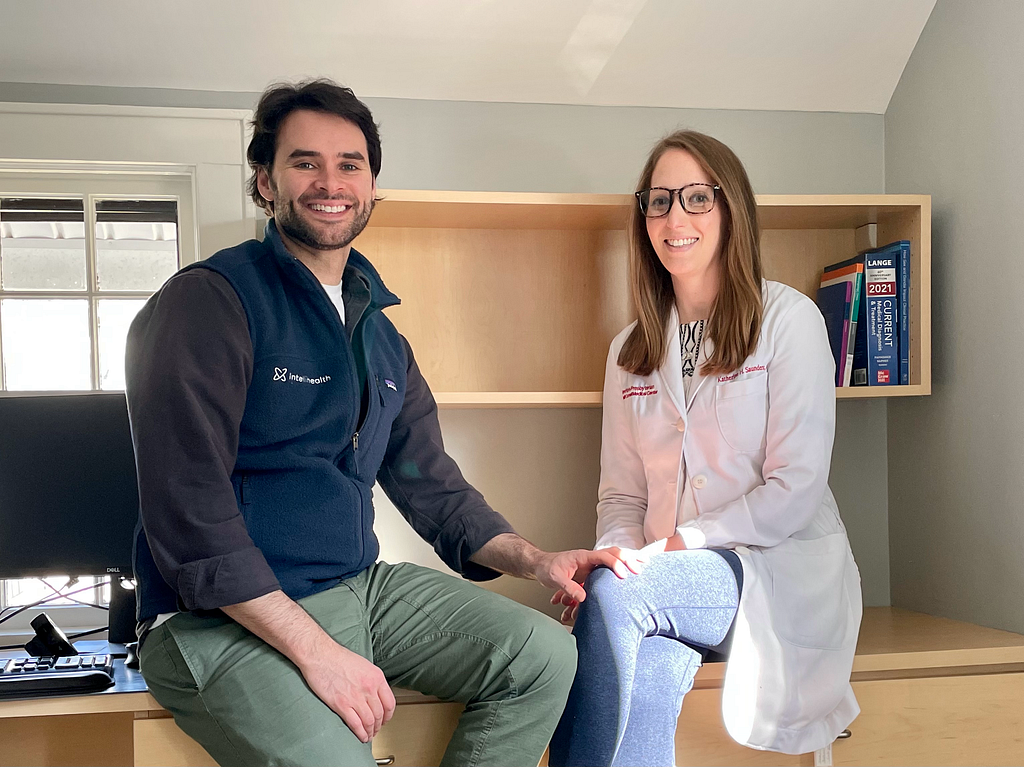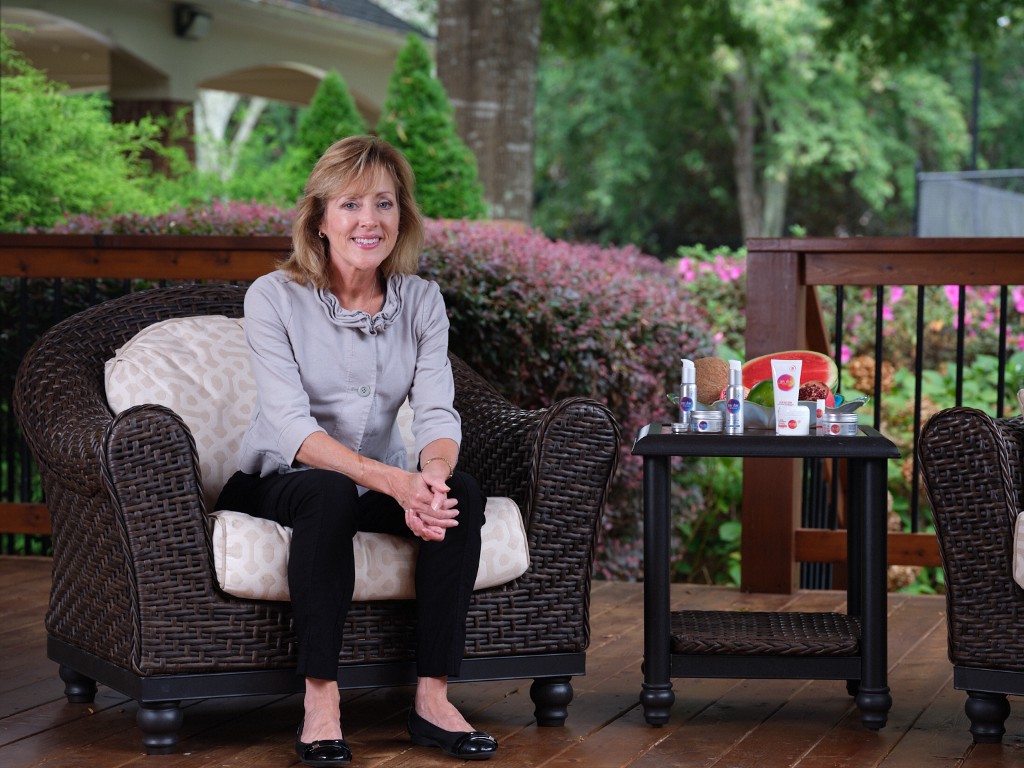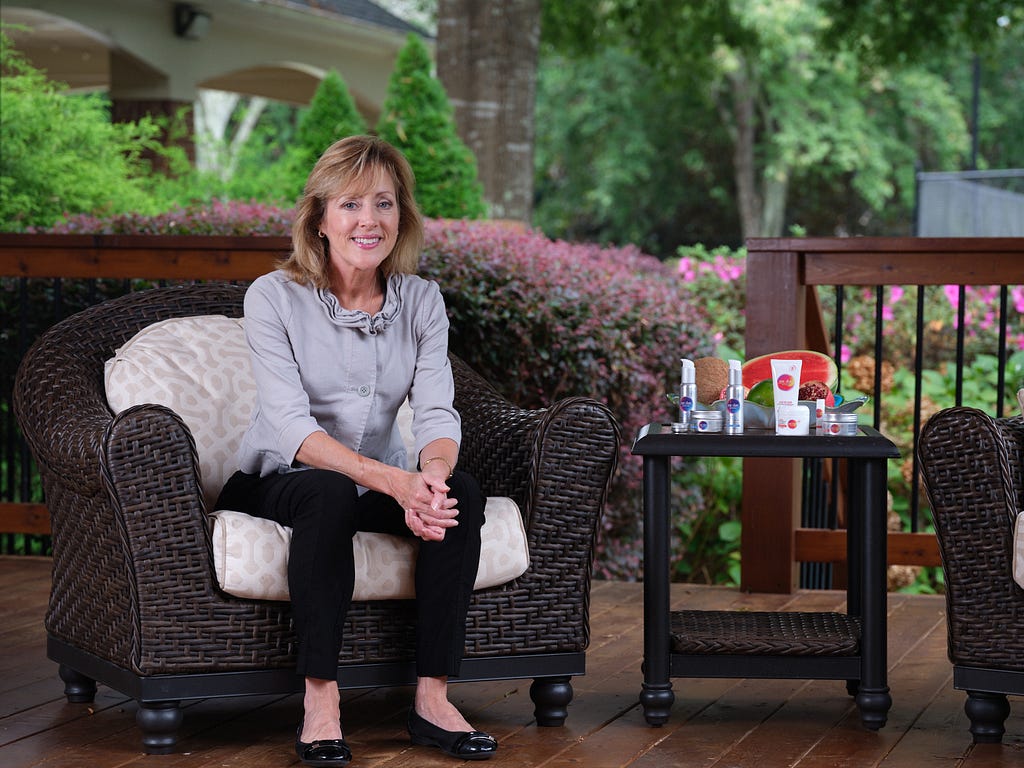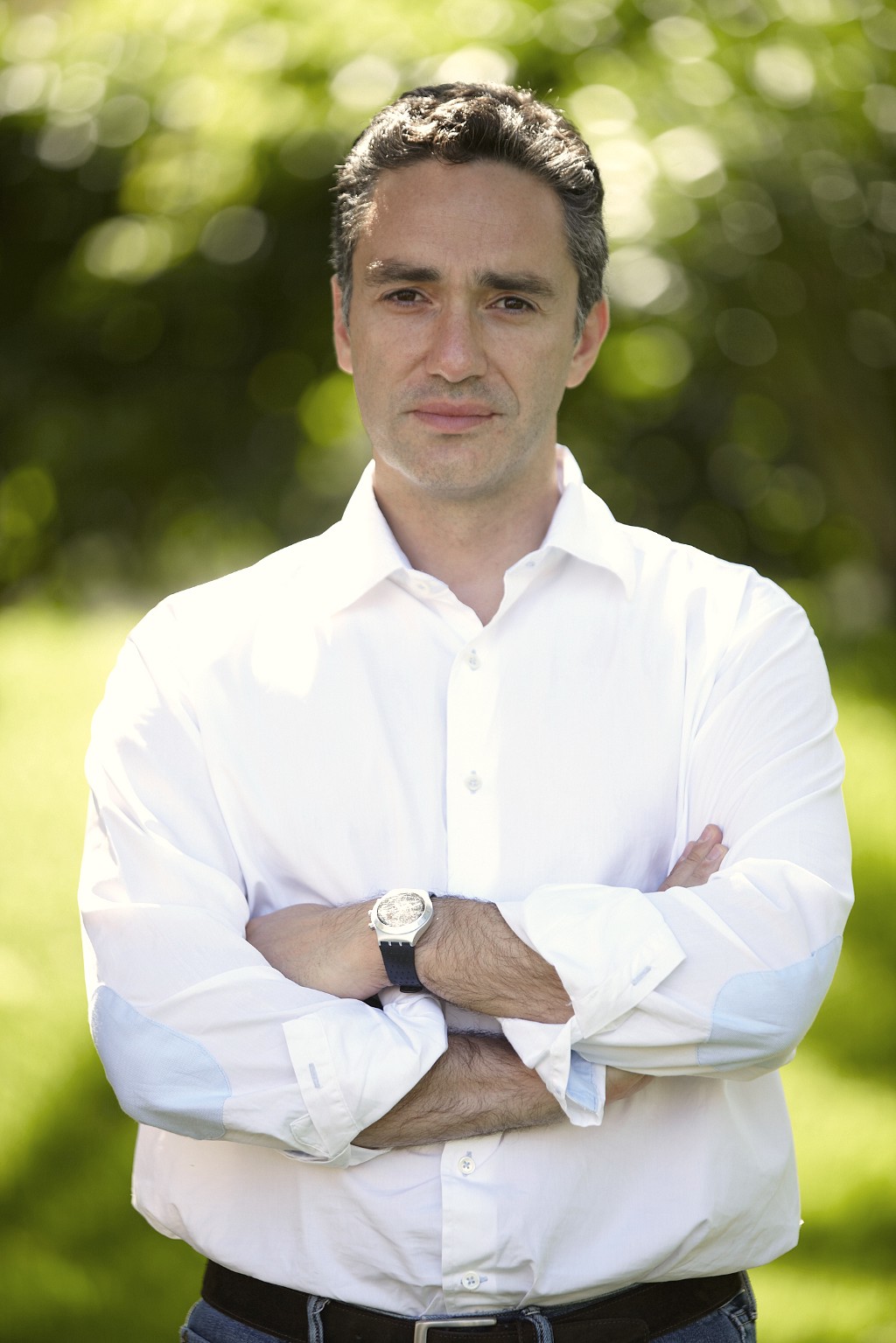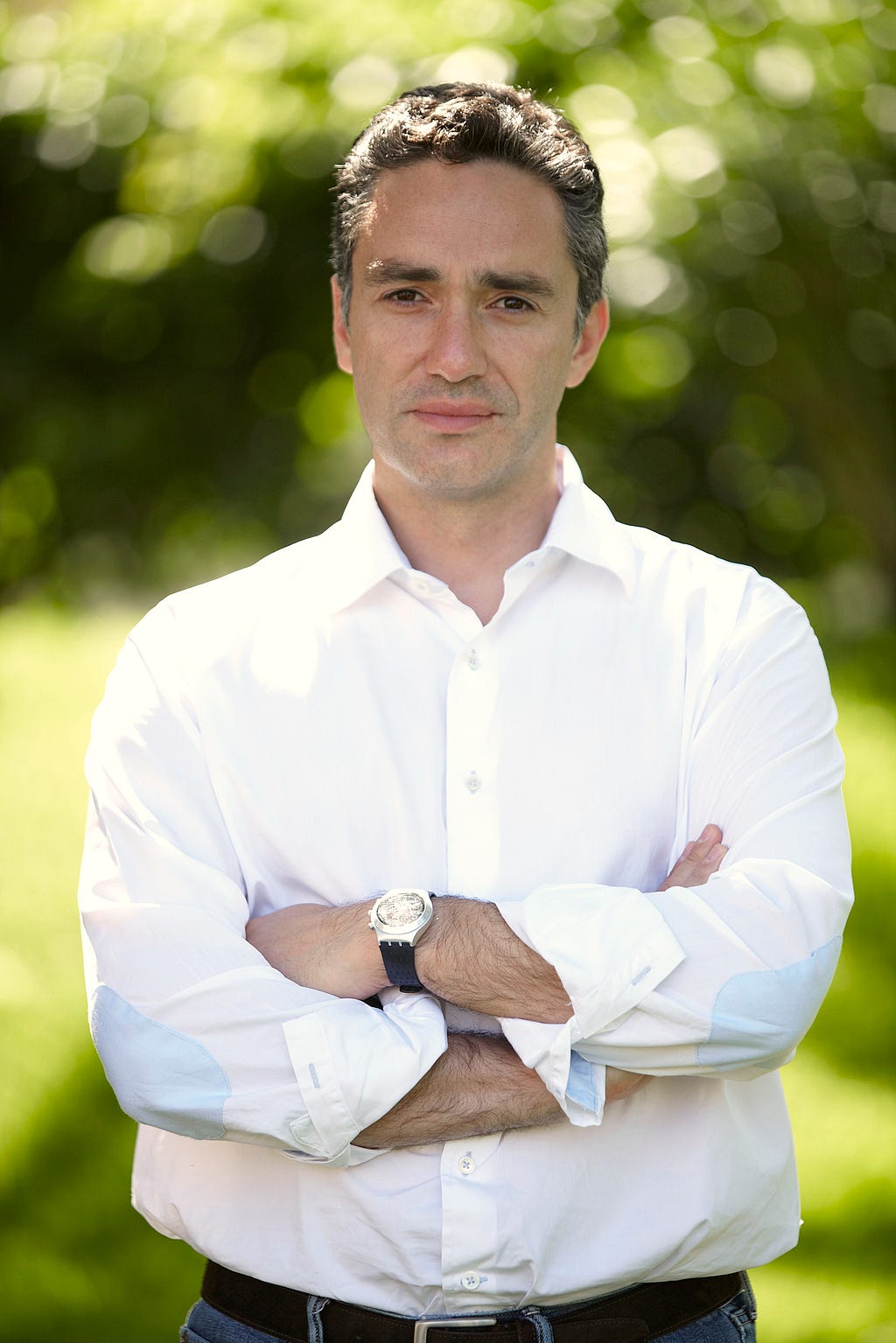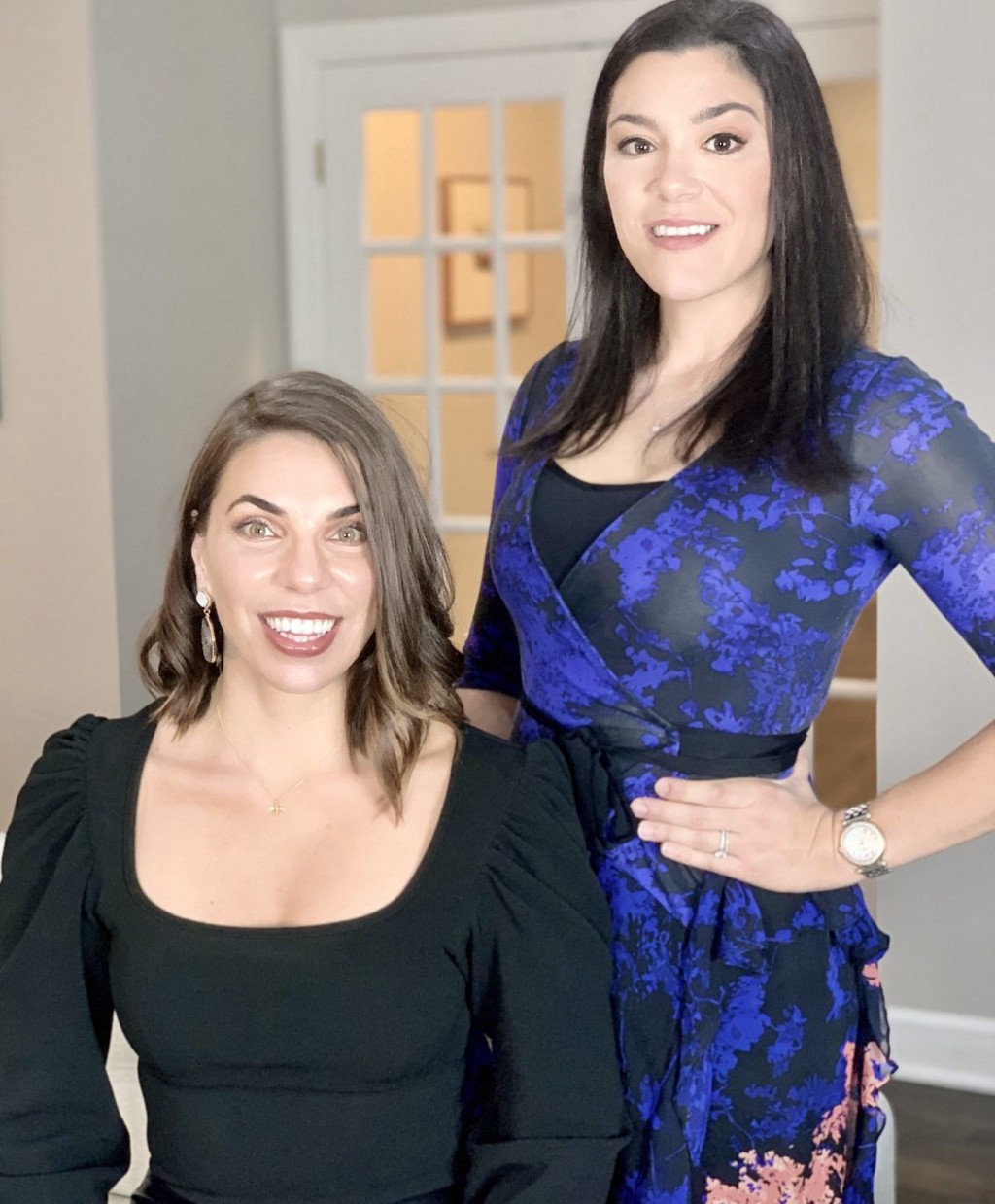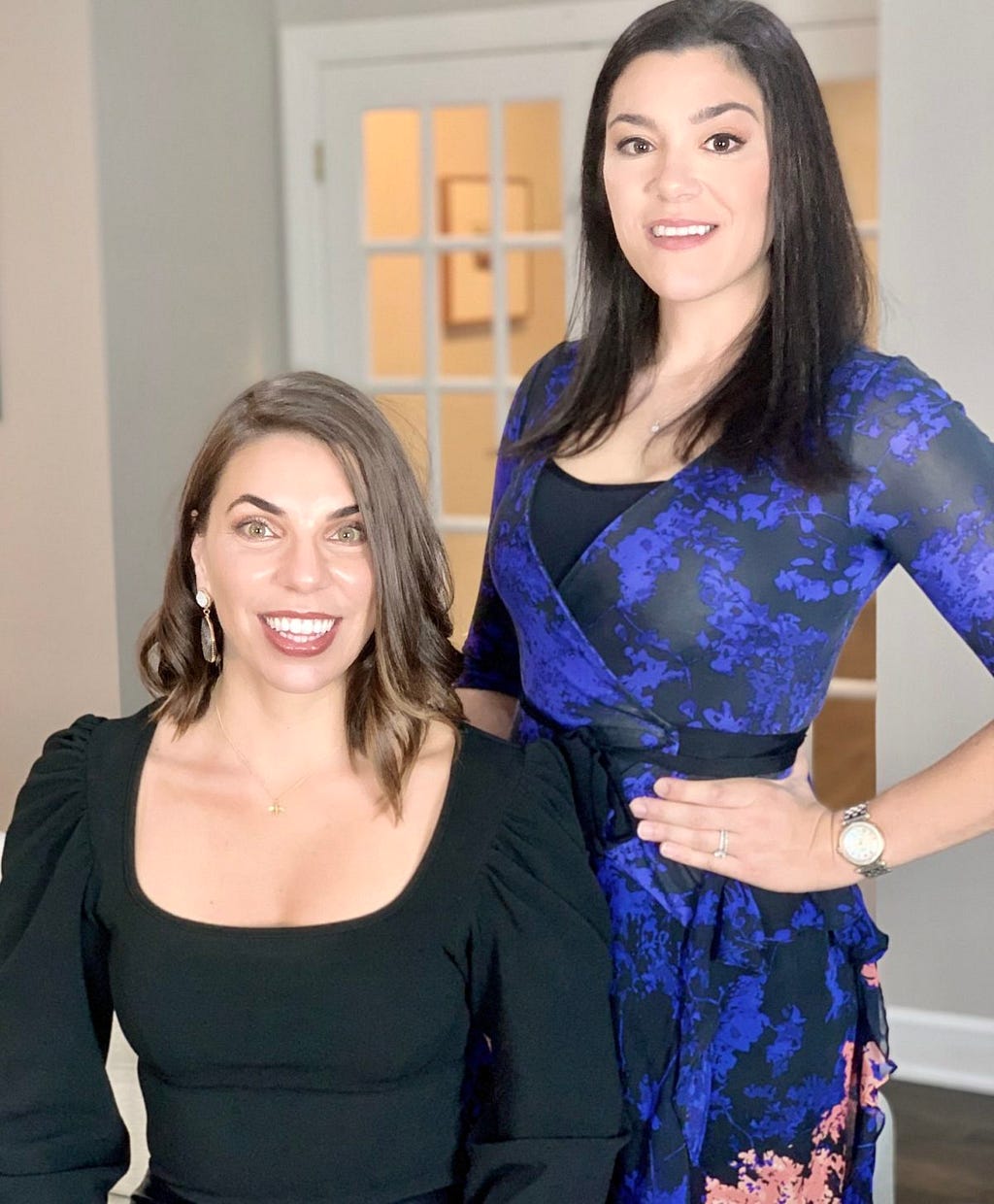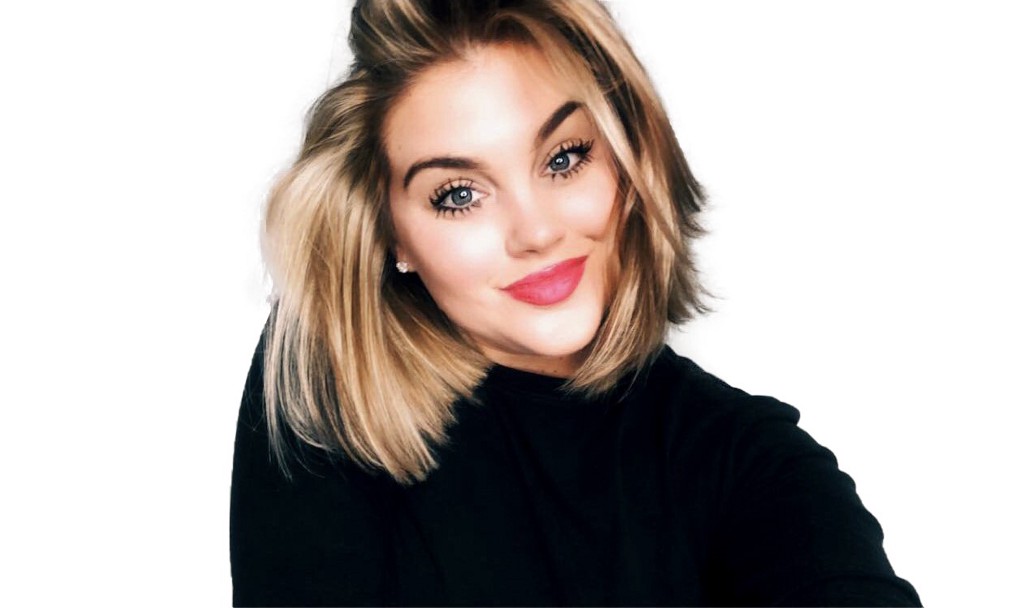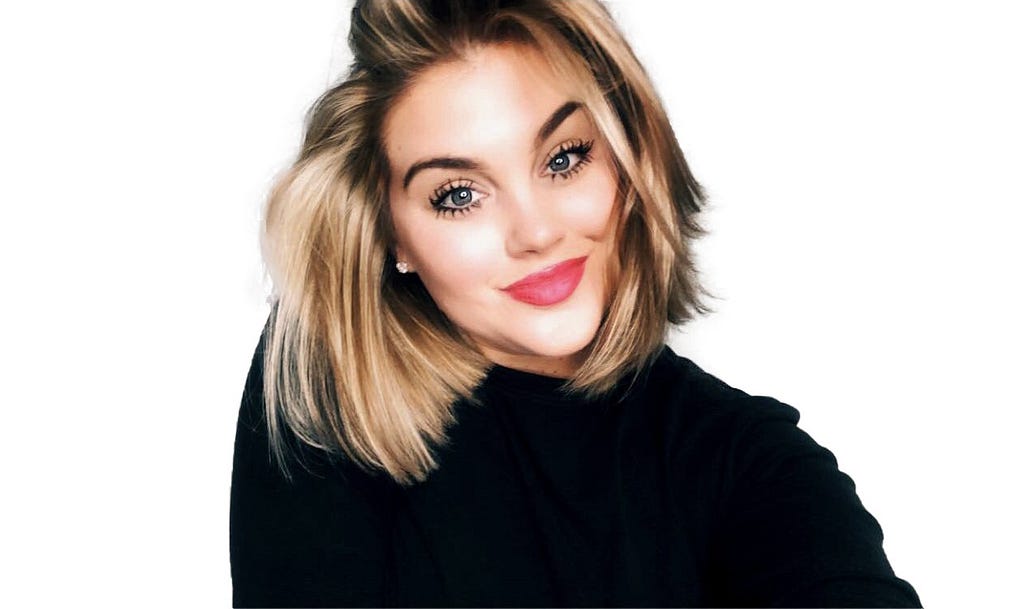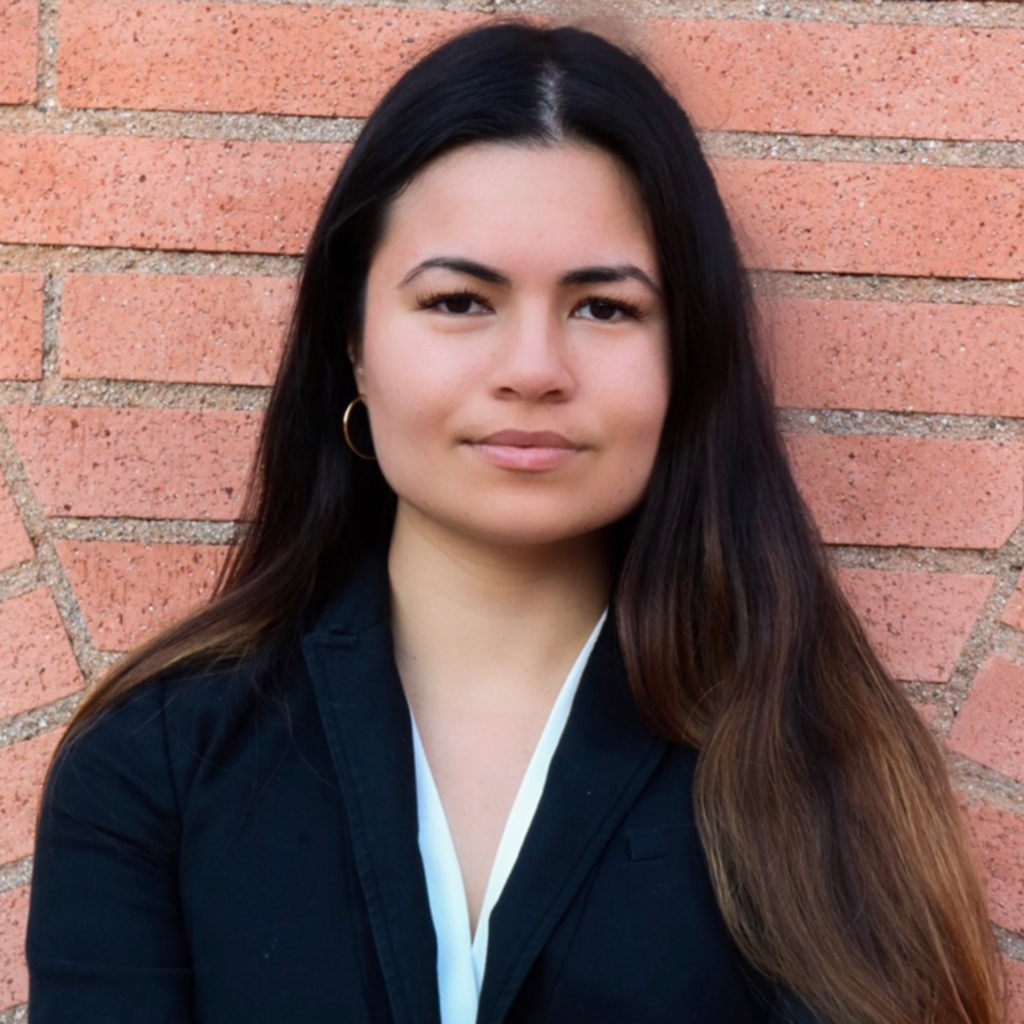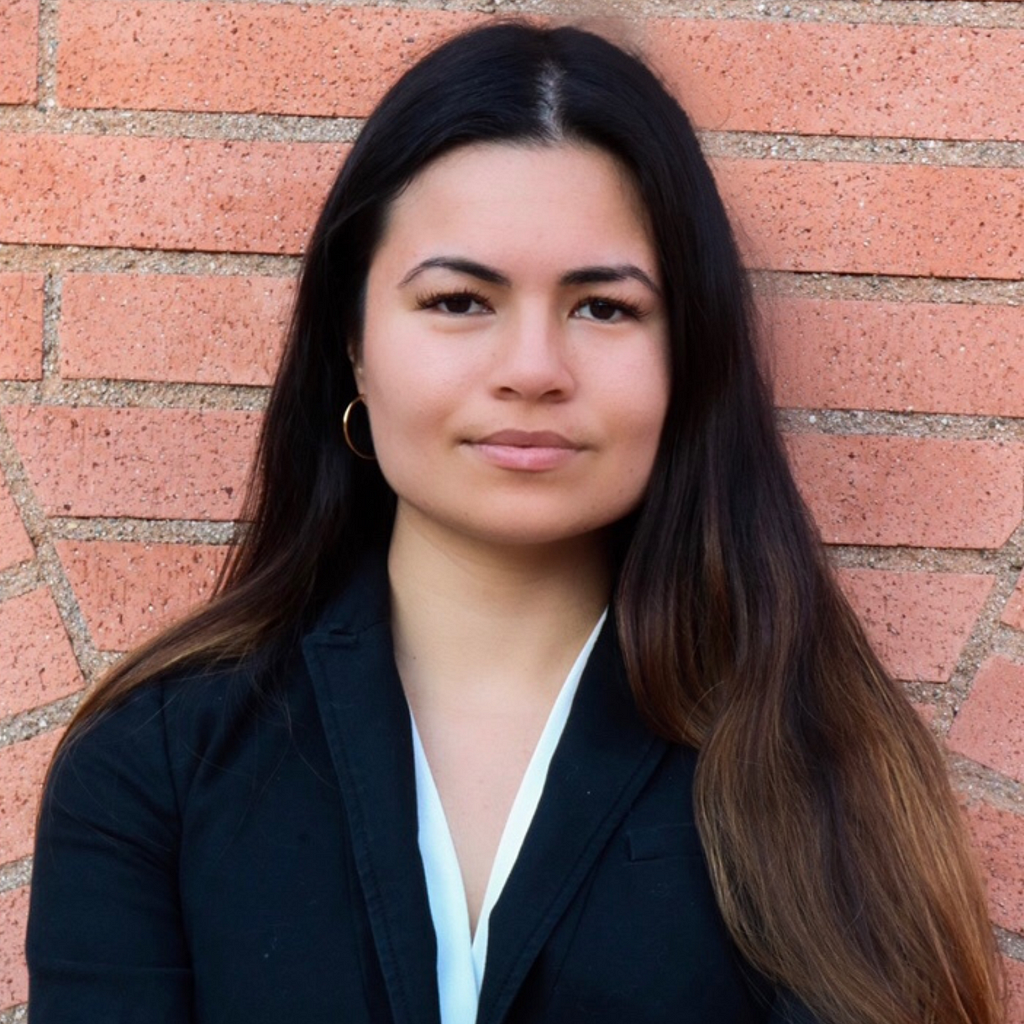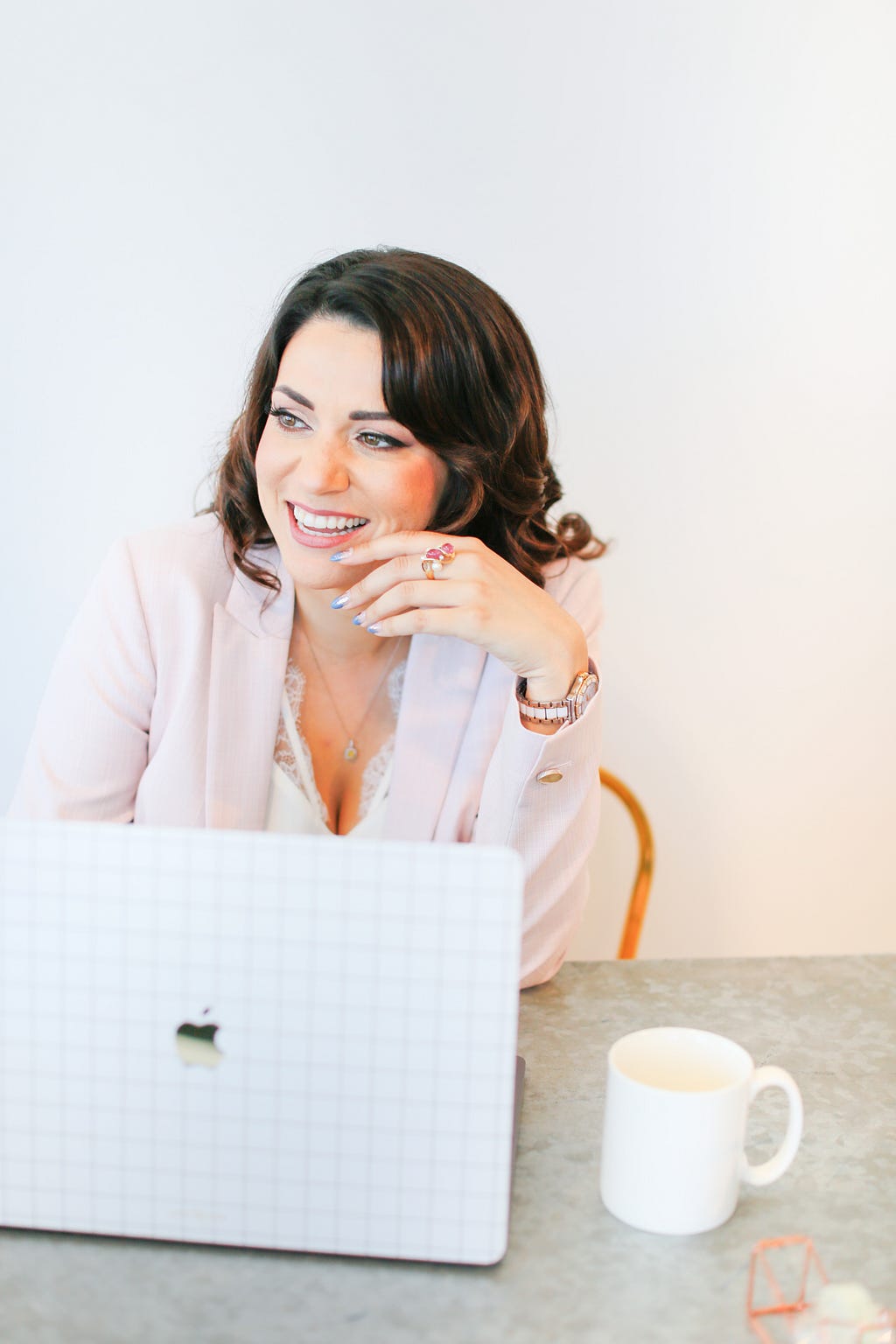
If we are not being true to who we are because we afraid of how we will look then we are also not allowing others to be true to who they are. It creates fear and blocks for everyone instead of authenticity. Figuring out who you are and how to share your story in a positive way inspires others and lifts them up.
As a part of our series about how very accomplished leaders were able to succeed despite experiencing Imposter Syndrome, I had the pleasure of interviewing Maegan Lujan.
Maegan Lujan is a brand strategist, business leader, and author on a mission to motivate and inspire others. Maegan’s journey has taken her from high risk in the foster system to high potential in Corporate or Fortune 500 boardrooms and beyond. She was recently named to the 2020 Top 100 Product Marketing Influencers list by the Product Marketing Alliance and the 2021 People to Watch List by The Cannata Report. Maegan’s tenacity has also earned her a nomination for the Women in Business Award from The Orange County Business Journal in both 2019 and 2020 and recognition as a 2016 Young Influencer and 2019 Woman of Influence by The Cannata Report. Both on-stage and off, Maegan enjoys assisting with and speaking out for causes associated with foster care, domestic violence, and youth development.
Thank you so much for joining us! Our readers would love to “get to know you” a bit better. Can you tell us a bit about your ‘backstory’?
Well, I grew up in Foster care and then I was out on my own at 14 years old. I didn’t go to high school or college. But I made my way in the world and climbed up the corporate ladder by starting as a temporary document scanner operator at a bank. Later on, I ran a lean entrepreneurial operation at Drivve which really fueled my entrepreneurial spirit. I stepped back into the corporate world landing my current role as a Director at Toshiba. And now I have expanded that into managing both my corporate career and starting my personal brand becoming an intrapreneur. More on that here. Talk about imposter syndrome! A teenager trying to be an adult. A non-college grad as a director in the male-dominated field of technology. Then I started wanting to build my own personal brand but I was afraid to tell my real story about where I came from. But I have started sharing and that has made all the difference.
Can you share with us the most interesting story from your career? Can you tell us what lessons or ‘take aways’ you learned from that?
I remember when I was just starting out in my professional career in the early 2000s and was working a full-time job managing loan portfolios and temporary jobs on the evenings and weekends.
One of the jobs I did in the evenings was “Admissions” for a college in GA at 11.50 per hour.. which is basically cold calling prospects. It was like living an old-school sales meme. I was toured through layers of the campus, seas of cubical, into an office, and back into a large conference room with more cubicles.
I was sat down at a dusty desk with a desk phone, pen, highlighter, and printed prospect list and told to just book in-person appointments for the admission staff. No training, scripts, or guidance. Truth be told, I hated that job. Every minute of it for the first three days, and then I ghosted them — professionally. I called the staffing agency up on my fourth day and told the truth. I appreciated the offer and I tried to do the work. It was hard. After hours of calling and dealing with brutally rude people, I was only booking 20-ish appointments per week. It was hard work, no one wants to get a cold call. Period. I didn’t like feeling as though I wasn’t making a contribution and getting beaten down in the process. I then went on to thank them and maintain the bridge built by saying this “considering I have an FT job, the PT job at $11.50 isn’t attractive and I would like to pass and end the remaining 6-month assignment”. It was a hard conversation to have, to be an adult and say, it’s not working and to have the talk.
What happened next blew my mind and changed my career path mindset forever.
Later that evening, after my shift was about to start, I received a call from the manager. He told me that he was really disappointed in me not returning and went on to tell me that the numbers I hit were 4x the volume of anyone else they’ve had in that role. He said he wanted to pay the agency to bring me on as a direct employee, PT, and that he wanted to know the price. We have all had those moments, where you have to leap and just state your worth. I shot high and said $18.50 he accepted. It blew my mind and here’s what I learned
- Having the hard talks in life opens up more possibilities and you learn to trust yourself a bit more.
- I didn’t know my worth and spent time feeling like an imposture when others had a totally different perspective.
- Everything is negotiable and you won’t know until you try.
What do you think makes your company stand out? Can you share a story?
The company I work for Toshiba stands out because of our values. We value grit.
You have to be bold and take some risks. You have to be determined to figure things out and be creative. The support they provided me in launching my thought leadership and personal branding goals and helping me give back through my work with the Orangewood Foundation. Toshiba’s values are Agile, Bold, Creative, Determined, Empowered. I love that!
None of us are able to achieve success without some help along the way. Is there a particular person who you are grateful towards who helped get you to where you are? Can you share a story?
My LinkedIn Community.
LinkedIn community, you’ve helped me grow by encouraging me, pushing me, giving me honest feedback, and challenging me to be better today than yesterday. To continue showing up and providing value during one of the worst times in history: COVID-19. The positive affirmation I’ve received from you, encouraging me to write blogs and books, has been monumental. I cannot thank you enough!
Ok thank you for all that. Now let’s shift to the main focus of this interview. We would like to explore and flesh out the experience of Impostor Syndrome. How would you define Impostor Syndrome? What do people with Imposter Syndrome feel?
To me, Imposter Syndrome is feeling like you don’t belong. I grew up without a mother or father in foster care. I didn’t feel like I belonged. It is feeling inferior to someone else. The feeling did not stop when I was young. It didn’t stop as I climbed the corporate ladder. It did not stop when I received honors and accolades.
I was named a top influencer by the 2019 Cannata Report and for that honor, I needed to go out to New York and tell my story. I was there thinking, why am I here. I don’t deserve to be here. I didn’t feel successful enough.
It’s something you have to fight personally as an entrepreneur knowing everyone’s story and path are different. I’ve battled imposter syndrome since beginning my career. The truth is, I still do to an extent. I feel we all do, and that we need to experience this (in small doses of course) to be successful on our chosen paths.
It’s how you know that you are stretching into a new growth area. You have to be brave enough to suck at something new.
What are the downsides of Impostor Syndrome? How can it limit people?
Imposter Syndrome limits us by keeping us from taking risks. It can also keep us from asking for help when we need it and keep us from being humble enough to grow. We want to keep up an image or front on the outside but we have to let go of this to learn and be true to who we are. No one can be me. No one has my combination of skillsets, passion, and story.
How can the experience of Impostor Syndrome impact how one treats others?
If we are not being true to who we are because we afraid of how we will look then we are also not allowing others to be true to who they are. It creates fear and blocks for everyone instead of authenticity. Figuring out who you are and how to share your story in a positive way inspires others and lifts them up.
High-achieving individuals are marked by an inability to internalize their accomplishments and a persistent fear of being exposed as a “fraud.” Does that sound familiar?
In my experience, imposter syndrome is a feeling that you aren’t authentic. You have your skillset, belief sets, accomplishments and resume, knowledge, etc. yet you still don’t quite feel as though you are that person or that you’re deserving of being that person. As a result, you’re continually trying to improve yourself and overachieve and overdeliver.
It is something I think we all have to continue to work at. Leaders especially need to set the example to build authentic teams and authentic companies
We would love to hear your story about your experience with Impostor Syndrome. Would you be able to share that with us?
As I talked about before I have experienced Imposter Syndrome many times over. That instance where I was honored as a top influencer for the Cannata Report opened my eyes to ways that I could write and share my story through the platforms I’ve been given to let others know that who you are on paper, or who you have been, does not tell the end of your story.
You can change things. You get to be the CEO of your life.
Did you ever shake the feeling off? If yes, what have you done to mitigate it or eliminate it?
Taking time to reflect and get clarity is what helps me push past feeling like an imposter. Last year provided the time for me with the pandemic and got me on this new journey of helping corporate leaders build their personal brands not hiding who they are but by sharing.
In your opinion, what are 5 steps that someone who is experiencing Impostor Syndrome can take to move forward despite feeling like an “Impostor”? Please share a story or an example for each.
- Know who you are and what you want out of life. I have done this in my corporate career by taking assessments. It is hard to face your weaknesses and how others see you but it gives you the power to grow.
- Don’t be afraid to share your story. You can share it your way and you do not have to share everything. But know that your story connects you with humanity.
- Humanize yourself. Social media is supposed to be social. We’re not just building companies, we’re building communities
- Know that failure is ok. It is not the end of your journey but part of it. Failure always brings lessons and things we can take away for next time.
- Just keep going. You may have these feelings but don’t let them stop you from focusing and accomplishing your dreams and goals.
You are a person of great influence. If you could inspire a movement that would bring the most amount of good to the greatest amount of people, what would that be? You never know what your idea can trigger. 🙂
Normalizing the path to success by sharing the failures. People are craving the real, raw, and actionable stuff. Maybe tie this into building a personal brand. If you do this properly, you will go on a self-discovery and development journey. You will learn more about who you are, what you love to do, and how to share that with the world. And we all need it.
We are blessed that some very prominent leaders read this column. Is there a person in the world, or in the US, with whom you would love to have a private breakfast or lunch, and why? He or she might just see this, especially if we tag them 🙂
I’d love to spend time with Sophia Amoruso. She embodies the grit and grace that I bring to my day-to-day, has been there and done that vibes, and acts in ownership of her failures. I’m impressed with all the touchpoints of her brand.
How can our readers follow you on social media?
https://www.linkedin.com/in/maeganlujan/
https://www.facebook.com/maegan.lujan/
https://www.facebook.com/maegan.lujan/
This was very inspiring. Thank you so much for joining us!
Maegan Lujan: How To Thrive Despite Experiencing Impostor Syndrome was originally published in Authority Magazine on Medium, where people are continuing the conversation by highlighting and responding to this story.

